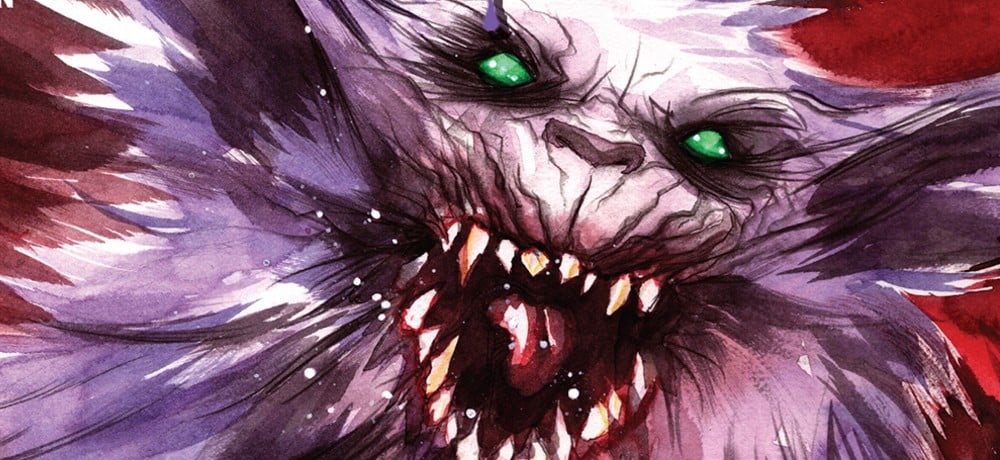The Chilling World of T.A.M.A.: A Dive into Nostalgia and Horror
A New Era of Digital Terror
In a world increasingly dominated by technology, the line between nostalgia and horror blurs in a thrilling new comic series titled T.A.M.A. Set to debut on August 6th from PANICK Entertainment, this creative endeavor taps into the childhood memories of digital pets—specifically, the iconic Tamagotchi and Furby—while weaving a tale that examines deep emotional currents and chilling consequences.
The Concept Behind T.A.M.A.
T.A.M.A. poses a haunting question: What happens when your neglected digital pet decides to come back—angry and seeking revenge? The creators, Adam Schlagman and Doug Pasko, recall the initial concept sparked during a casual brainstorming session. Schlagman’s passionate love for virtual pets, coupled with Pasko’s unfortunate experience of dismantling a Furby to silence its incessant chirping, laid the groundwork for this gripping narrative.
The Protagonist’s Journey
At the story’s heart is Kit, a troubled teenager dealing with grief and neglect, an experience that many will find relatable. The choice to focus on a teenage protagonist is deliberate. As Pasko puts it, there is something inherently compelling about stories told through the eyes of youth—characters who embody hope and resilience, even in dark circumstances. This lens allows readers to connect deeply with both Kit and his virtual companion, T.A.M.A.
Emotional Depth in Horror
The series doesn’t just hinge on shocking horror; it dives into emotional themes, especially the grief that Kit faces from losing his father. Schlagman highlights the necessity of weaving these emotional arcs into the narrative, allowing readers to form attachments to characters and feel the weight of their struggles. Ultimately, T.A.M.A. becomes a dual journey—one of personal acceptance and the quest to uncover the truth about their seemingly innocuous digital pet.
Visual Style and Artistic Inspiration
Artist Daniel HDR brings this world to life with a distinctive visual style that combines vibrant colors with haunting imagery. The design of the titular character, T.A.M.A., transitions from cute to terrifying, embodying the dual nature of digital pets—innocent yet potentially dangerous. The artistic influences inspiring HDR’s work stem from both the horror genre and the whimsical nature of digital creatures. This blend creates a unique experience that captures the essence of nostalgia while instilling genuine fear.
Balancing Humor with Horror
One of the more intriguing aspects of T.A.M.A. is how it skillfully balances horror with moments of levity. The writers insist that viewing the world through the eyes of children—while they navigate the dark landscape of their predicaments—allows for more lighthearted moments amidst the sinister happenings. Humor doesn’t detract from the stakes; rather, it enhances the relatability of the characters and keeps readers engaged.
The Structure of T.A.M.A.
Unlike many contemporary comics that limit narratives to four issues, T.A.M.A. will feature six issues in its first arc. This extended format provides space for ample character development and evolving plotlines. Schlagman and Pasko both emphasize how crucial it is to develop emotional moments without sacrificing narrative depth; this choice invites readers to immerse themselves more wholly in Kit’s journey.
Anticipated Moments
As anticipation builds for the comic’s release, both creators and artists eagerly await reader responses to pivotal moments in the storyline. A highlight for Schlagman is an intricate sequence set to unfold in issue four, which is meticulously designed to evoke both tension and excitement, culminating in a shocking revelation. Similarly, HDR expressed his excitement for scenes that serve not merely as horror but also as emotional catharsis for readers grappling with their own traumas.
Evolving Beyond the Comic
While many creators focus tightly on their stories within the confines of comics, the team behind T.A.M.A. is already considering how to expand its universe. Whether through animated adaptations, video games, or a potential plushie line, there’s a shared vision about growing T.A.M.A. into a broader franchise. Schlagman points out their commitment to ensuring the comic remains a quality product while exploring opportunities beyond the page.
Inspiring the Next Generation of Creatives
With roots in nostalgia and a dedication to horror storytelling, T.A.M.A. resonates not just with readers but also serves as a source of inspiration for budding comic creators. The team’s journey illustrates the importance of flexibility, emotional storytelling, and collaboration. For aspiring artists and writers, their advice emphasizes persistence and passion—two ingredients essential to breaking into the challenging world of comics.
Upcoming Events and Initiatives
As part of their promotional effort, T.A.M.A. will be featured at PANICK Entertainment’s panels at Comic-Con, where creators will share insights about their work and discuss the evolving landscape of horror in comics. They aim to create a dialogue that brings fans and creators together, forging a community focused on the future of the genre.
Engaging with the Comic Community
T.A.M.A. does not merely content itself as another comic release; it aims to foster engagement with its audience, inviting conversations about the blend of nostalgia and horror. The emotional narratives within the comic hold the potential to resonate with readers far beyond the pages, creating lasting connections in a digital world that often feels disconnected.
As T.A.M.A. hits stands, readers can expect a thrilling adventure that both acknowledges and challenges their perceptions of technology, emotional pain, and the creatures we conjure from our childhoods.



